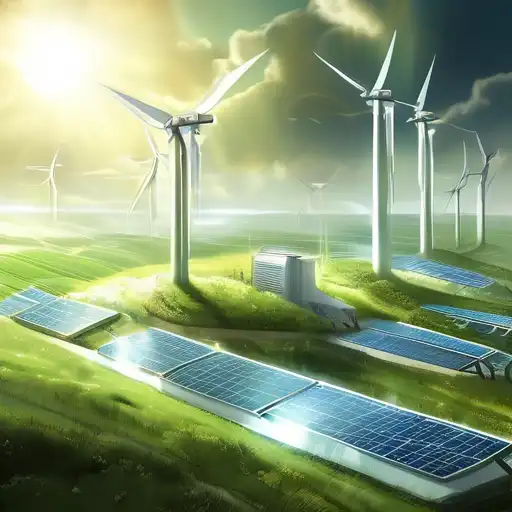The Dawn of a New Energy Era
The global energy landscape is undergoing a transformative shift, with renewable energy sources at the forefront of this change. As the world seeks sustainable solutions to combat climate change, the future of renewable energy looks brighter than ever. This article explores the innovations and trends that are shaping the next era of renewable energy, offering insights into how these developments will impact our planet and daily lives.
Breaking New Ground in Solar and Wind Energy
Solar and wind energy continue to lead the charge in renewable energy advancements. With cutting-edge solar panel technologies and more efficient wind turbines, these energy sources are becoming increasingly accessible and affordable. The integration of artificial intelligence and machine learning for optimizing energy production and distribution is further enhancing their potential.
The Rise of Energy Storage Solutions
One of the biggest challenges facing renewable energy is storage. However, recent advancements in battery technology and energy storage systems are paving the way for more reliable and consistent energy supply. Innovations such as solid-state batteries and flow batteries are set to revolutionize how we store and use renewable energy.
Green Hydrogen: The Fuel of the Future
Green hydrogen, produced using renewable energy to power electrolysis, is emerging as a key player in the renewable energy sector. Its potential to decarbonize industries that are hard to electrify, such as shipping and aviation, makes it a critical component of the future energy mix.
Smart Grids and the Internet of Energy
The development of smart grids and the Internet of Energy (IoE) is enabling more efficient energy distribution and consumption. By leveraging IoT technologies, these systems can dynamically adjust to energy supply and demand, reducing waste and improving sustainability.
Challenges and Opportunities Ahead
While the future of renewable energy is promising, there are challenges to overcome. Infrastructure development, policy support, and public acceptance are crucial for the widespread adoption of renewable energy technologies. However, with continued innovation and collaboration, these obstacles can be addressed, unlocking the full potential of renewable energy sources.
The transition to renewable energy is not just about technology; it's about creating a sustainable future for generations to come. By embracing these innovations and trends, we can ensure a cleaner, greener, and more resilient energy system.
Conclusion
The future of renewable energy is a mosaic of innovation, challenges, and opportunities. As we move forward, the collective efforts of governments, industries, and individuals will be paramount in shaping an energy landscape that is sustainable, efficient, and inclusive. The journey towards a renewable energy future is well underway, and the possibilities are limitless.
